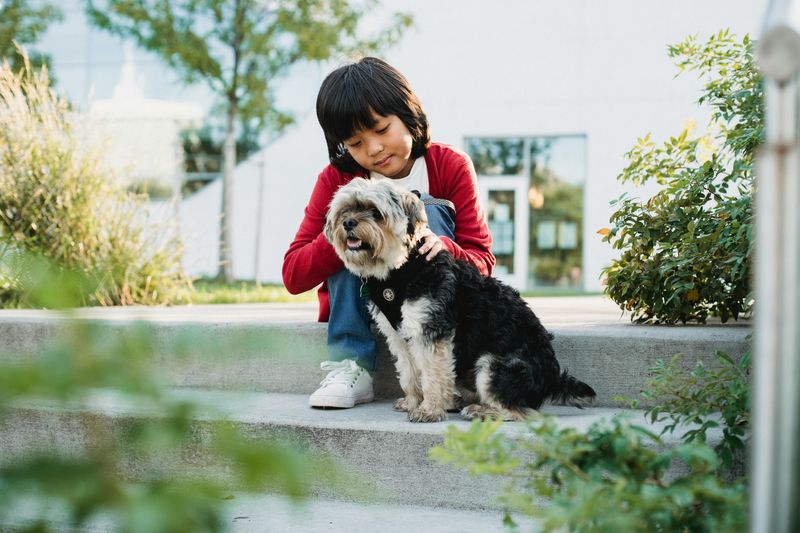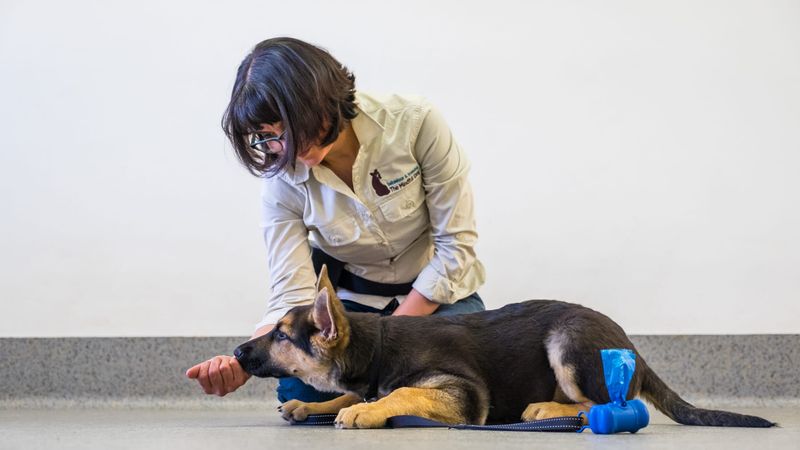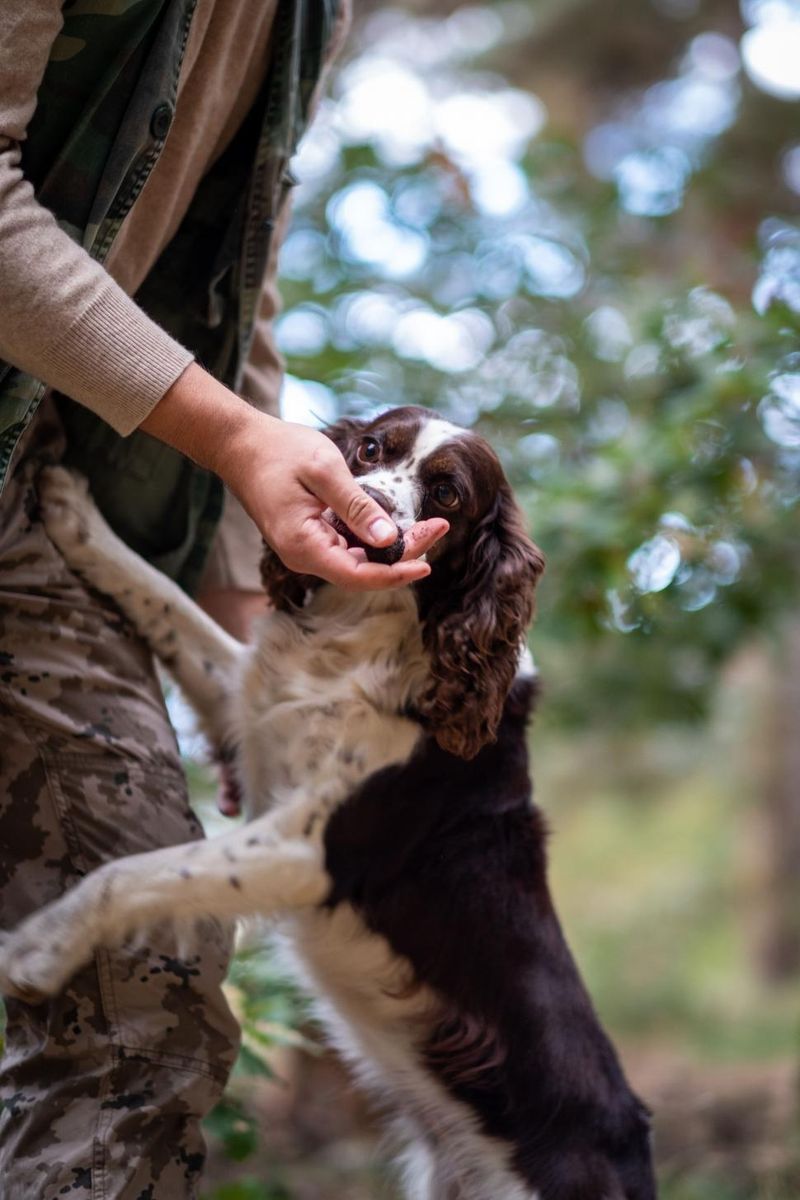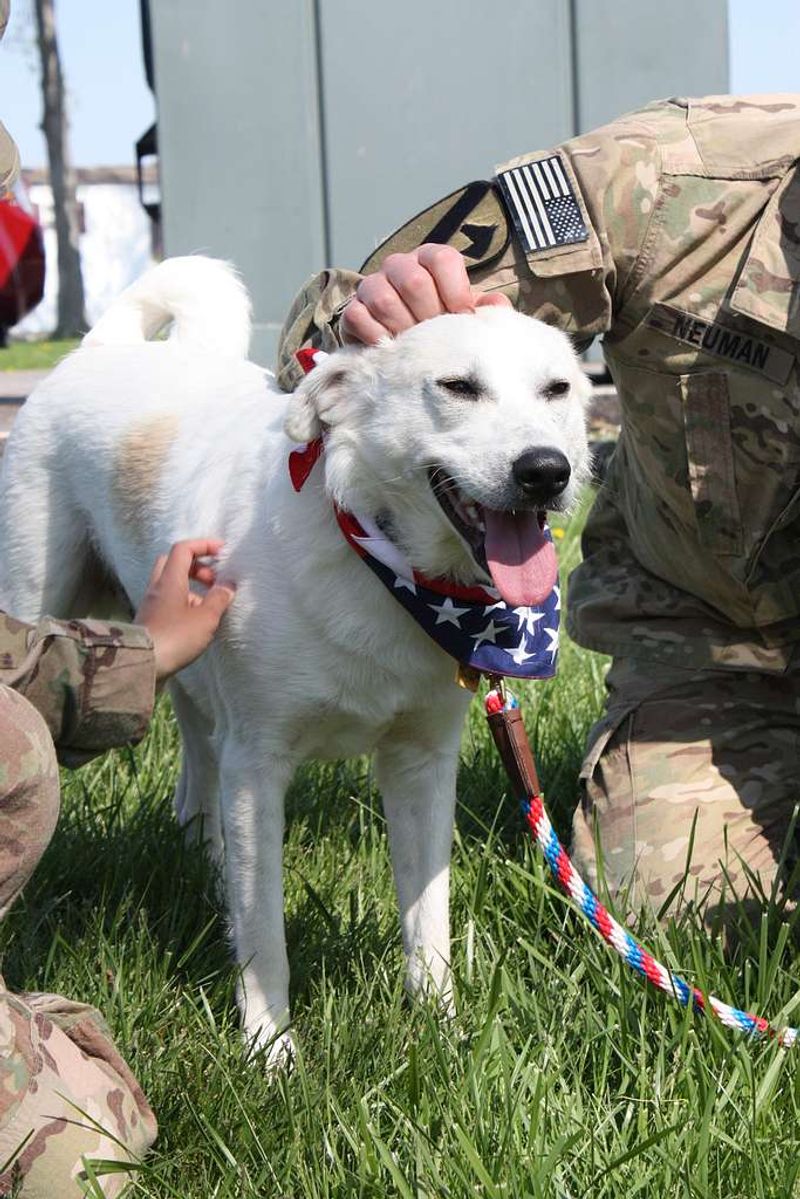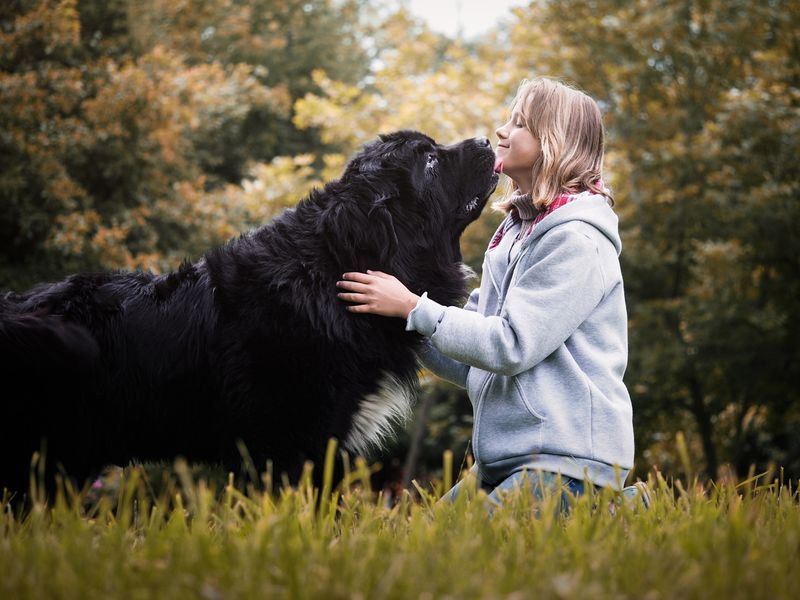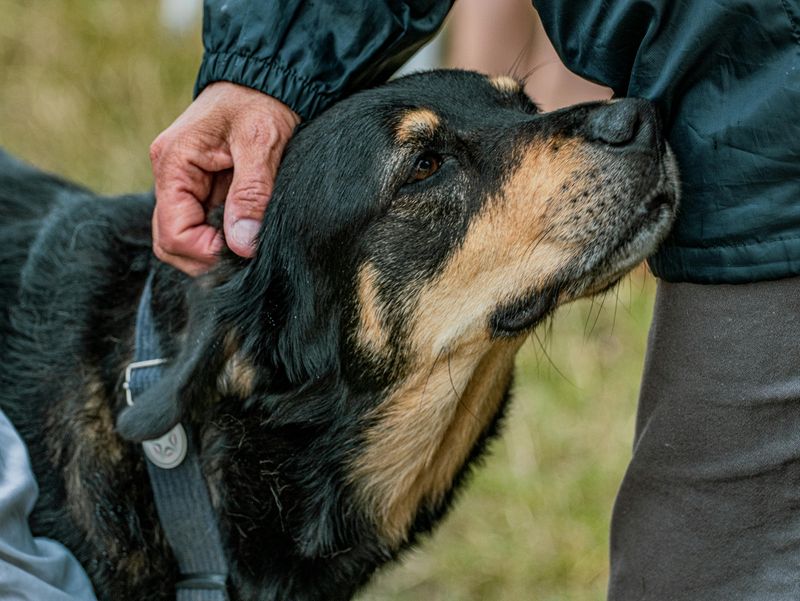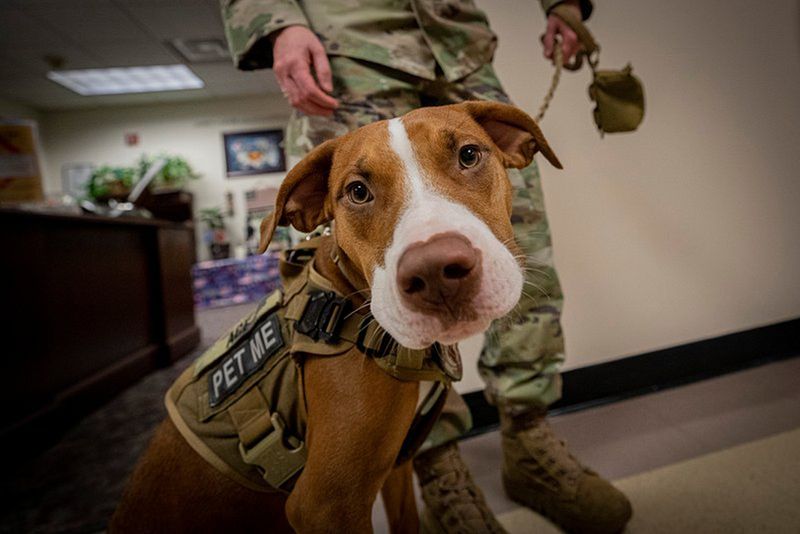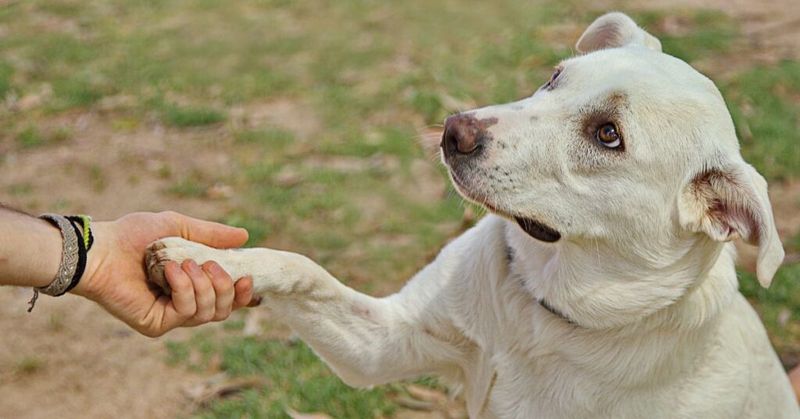Dogs have long been celebrated as loyal companions, but their impact on our emotional health is profound and multifaceted. From easing tension to fostering joy, dogs enrich our lives in countless ways. Here, we explore 19 meaningful contributions that dogs make to our emotional well-being.
Lowering Blood Pressure Through Presence and Touch
Imagine coming home after a stressful day to a wagging tail and a pair of soulful eyes. The simple act of petting a dog has been shown to lower blood pressure. This immediate calming effect is linked to the release of oxytocin, often dubbed the “love hormone.”
As your heart rate slows, the gentle rhythm of your dog’s breathing can create a soothing atmosphere. This tranquil companionship provides more than comfort; it’s a natural antidote to stress.
The presence of a dog can transform your home into a sanctuary of peace, where worries melt away with each affectionate pat.
Reducing Anxiety and Loneliness
In moments of solitude, a dog’s companionship offers solace and warmth. Their non-judgmental presence provides a comforting buffer against loneliness, offering consistent and unwavering support.
Dogs have a unique ability to sense anxiety, often leaning in close or offering a reassuring nuzzle. This intuitive connection fosters a sense of being understood, easing the weight of anxious thoughts.
The gentle companionship of a dog can be a balm to the soul, transforming internal storms into moments of serene connection. As loyal allies, they stand as a testament to the power of empathy.
Encouraging Physical Activity
Dogs are natural motivators, inspiring us to step outside and embrace the world around us. A brisk walk or playful game of fetch not only energizes the body but also uplifts the mind.
The responsibility of exercising a dog ensures a regular routine, fostering consistency in our lives. Whether rain or shine, their eager eyes and wagging tails become a call to action.
With a canine companion, exercise becomes an enjoyable ritual rather than a chore. Each step taken together reinforces both physical health and a joyful sense of camaraderie.
Providing Structure and Daily Routine
Dogs thrive on routine and, in turn, help establish a structured daily life for their owners. Regular feeding times, walks, and play sessions create a predictable rhythm.
This structure offers stability, especially for those who might struggle with maintaining a routine on their own. The responsibility of caring for a dog adds purposeful tasks to each day.
By adhering to these routines, owners often find a sense of achievement and balance. The mutual benefit of shared schedules enriches both human and canine lives, creating bonds that are as rhythmic as they are reliable.
Offering Unconditional Companionship
With a heart as open as their wagging tail, dogs offer companionship that knows no bounds. Their presence is a constant reminder of loyalty and trust.
In moments of joy or sorrow, a dog remains by your side, offering warmth and understanding without expectation. This unwavering companionship fosters a deep-seated sense of belonging.
Dogs teach us the value of being present, celebrating simple moments together. Their unconditional love becomes a silent promise, reaffirming the beauty of genuine connections that require no words.
Helping with Emotional Regulation
Dogs possess an innate ability to help regulate emotions through their calming demeanor. Their presence can diffuse tension, offering an anchor in emotional storms.
When emotions run high, the gentle gaze of a dog can provide grounding, encouraging deep breaths and a moment of pause. This connection helps individuals navigate complex feelings with grace.
By mirroring calmness and offering a non-judgmental ear, dogs teach us to process emotions in a healthier manner. Their subtle support becomes a guide, leading us towards emotional resilience and stability.
Increasing Serotonin and Dopamine Levels
Spending time with a dog can trigger the release of serotonin and dopamine, neurotransmitters associated with happiness and pleasure. Their playful nature invites laughter, instantly lifting one’s mood.
Each joyful interaction, from a game of fetch to a simple belly rub, becomes a source of positive energy. This chemical boost enriches daily life, fostering a brighter outlook.
The infectious enthusiasm of a dog acts as a catalyst for joy, transforming ordinary moments into celebrations of life. Their exuberance becomes a reminder of the simple pleasures that elevate our spirits.
Giving Purpose to Owners
Caring for a dog infuses life with purpose, transforming routine tasks into meaningful acts of love. Feeding, grooming, and walking become opportunities to nurture and bond.
For many, dogs provide a sense of responsibility that extends beyond themselves, fostering empathy and commitment. This purposeful engagement enriches life, offering a profound sense of fulfillment.
By nurturing a dog, owners often rediscover their own value and capacity for love. The symbiotic relationship nurtures growth, with each interaction paving the way for personal enrichment and a shared journey.
Helping Trauma Survivors Feel Safe
For trauma survivors, a dog’s presence can be profoundly healing, offering a safe haven from past experiences. Their consistent nature provides a sense of security and stability.
Therapy dogs, in particular, are trained to recognize signs of distress, offering comfort through gentle proximity. This connection fosters trust, allowing individuals to open up and heal.
By creating a non-judgmental space, dogs help individuals reclaim their sense of safety. Their gentle companionship becomes a bridge, guiding survivors from a past filled with pain to a present filled with hope.
Boosting Social Connections During Walks
Walking a dog transforms a solitary activity into a social opportunity, inviting friendly interactions with fellow dog lovers. The presence of a dog becomes a catalyst for conversation.
Neighbors and strangers alike are drawn to the playful antics of a dog, often leading to shared smiles and spontaneous chats. These interactions build community bonds and foster new friendships.
Dogs become social ambassadors, bridging gaps and encouraging connection. With their inquisitive nature, they open doors to positive interactions, enriching both social circles and the wider community.
Sensing Emotional Distress and Responding
Dogs possess an extraordinary ability to sense emotional distress, responding with empathy and gentle presence. Their intuitive nature allows them to detect subtle changes in mood.
Whether it’s a comforting nuzzle or a steady gaze, a dog’s response can be remarkably attuned to emotional needs. This silent understanding offers reassurance and connection.
By acknowledging and responding to distress, dogs provide a compassionate anchor. Their sensitivity becomes a source of solace, reminding us that we are never alone in our struggles.
Promoting Mindfulness and Presence
Dogs live in the moment, embracing each day with fresh eyes and boundless enthusiasm. This mindful presence encourages us to slow down and savor the present.
Spending time with a dog, whether playing or simply being together, fosters a sense of awareness and calm. Their gentle reminders to live in the now promote mental clarity.
By mirroring their joyful engagement with life, dogs teach us to appreciate the beauty in simplicity. Their presence becomes a meditation, guiding us towards mindfulness and a deeper connection with the world.
Encouraging Empathy in Children
Dogs provide children with an invaluable lesson in empathy and responsibility. Caring for a living being fosters a sense of compassion and understanding.
Through daily interactions, children learn the importance of gentle care and attentive listening. Dogs become friends and teachers, guiding them towards emotional maturity.
This nurturing relationship instills values of kindness and empathy, shaping compassionate individuals. With a wag of the tail, dogs reveal the profound impact of love and understanding, nurturing empathy in young hearts.
Offering Comfort During Grief
In times of grief, a dog’s loyal presence provides solace and understanding. Their quiet companionship becomes a source of strength and comfort.
Dogs offer a tangible connection to life, reminding us of the enduring bonds that persist even in loss. Their gentle nature invites moments of reflection and healing.
By simply being there, dogs help alleviate the weight of sorrow, offering a safe space to grieve and remember. Their loving presence becomes a testament to resilience and the comforting power of silent support.
Reducing Stress Hormone Levels
Interacting with dogs has been scientifically proven to reduce cortisol, the stress hormone. This physiological response to canine companionship promotes relaxation and well-being.
The act of stroking a dog triggers a cascade of calming effects, easing tension and promoting tranquility. Their presence becomes an instant stress reliever.
By creating a serene environment, dogs encourage moments of respite and reflection. Their soothing presence becomes a natural remedy, transforming stress into peace and anxiety into calm.
Helping People Open Up Emotionally
Therapy dogs create a safe space for individuals to express their emotions, facilitating openness and trust. Their gentle presence encourages candid conversations.
By bridging the gap between silence and expression, dogs help individuals find their voice. This unique connection becomes a catalyst for personal growth and healing.
Through their non-judgmental nature, therapy dogs offer a comforting presence, inviting individuals to share their innermost thoughts. Their companionship becomes a pathway to emotional liberation and personal insight.
Offering Stability to People with PTSD or Depression
For individuals experiencing PTSD or depression, a dog’s steadfast presence provides a grounding force. Their consistent companionship offers reassurance and stability.
Service dogs are trained to recognize signs of distress, offering comfort through proximity and gentle intervention. This support fosters a sense of safety and normalcy.
By being a constant, dogs help individuals navigate the complexities of mental health challenges. Their unwavering presence becomes a beacon of hope, guiding them towards healing and resilience.
Enhancing Mood and Optimism
The cheerful presence of a dog can brighten any day, infusing life with joy and positivity. Their playful antics and boundless energy elevate mood.
Interacting with a dog provides a welcome distraction from daily worries, fostering a sense of joy and hope. Their exuberance acts as a catalyst for optimism.
By sharing moments of laughter and play, dogs remind us of the beauty in everyday life. Their infectious spirit becomes a source of inspiration, promoting a brighter, more optimistic outlook.
Teaching Patience and Consistency
Training a dog requires patience and consistency, qualities that are invaluable in daily life. This process fosters a deep understanding of discipline and determination.
Through shared learning experiences, both dog and owner grow together, developing mutual respect and communication. The journey instills valuable life lessons.
By embracing patience and consistency, individuals learn the importance of perseverance and commitment. Dogs become teachers, guiding us towards personal growth and a deeper appreciation for the virtues of time and effort.





